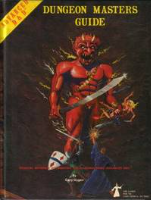I use sub-macros in my macros, so that as I progress with my character, I have fewer changes to make. For example, here are the macros relating to my powers on my D&D 4e Warden: #d20pSTR [[d20+@{Blackstone|STR}+floor(@{Blackstone|LVL}/2)+2+2+1]] #d20pSTRq [[d20+@{Blackstone|STR}+floor(@{Blackstone|LVL}/2)+2+2+1]]{?{Targets}} #1[W]pSTR [[d10r<2+@{Blackstone|STR}+2]] #2[W]pSTR [[2d10r<2+@{Blackstone|STR}*2+4]] #1[W]pSTR-CON [[d10r<2+@{Blackstone|STR}+@{Blackstone|CON}+2]] #WardensFury /me lashes out with nature's wrath! #d20pSTR vs. Fortitude Hit: #1[W]pSTR damage, target grants combat advantage to you and you allies until the end of your next turn. #Attack /me swings his mighty hammer! #d20pSTR vs. AC Hit: #1[W]pSTR damage. On an opportunity attack, deal an additional @{Blackstone|CON} damage and the target is slowed. #WeightOfEarth /me sends the primal energy of the earth flowing into his enemy. #d20pSTR vs. AC Hit: #1[W]pSTR-CON damage, target is slowed until the end of your next turn. #ThornStrike /me launches spectral thorns from his hammer! #d20pSTR vs. AC Hit: #1[W]pSTR damage, pull the target 1 square. #GoringCharge /me lowers his horns and charges forward! [[d20+@{Blackstone|STR}+4+floor(@{Blackstone|LVL}/2)]] vs. AC Hit: [[d6+@{Blackstone|STR}]] damage, target is knocked prone. #RootsOfStone !rr /me unleashes a burst of primal energy which causes the ground to ripple! !rr #d20pSTRq vs. AC !rr !rr Hit: #1[W]pSTR damage. When target leaves the zone, it is knocked prone and takes [[@{Blackstone|CON}]] damage. #WintersHerald !rr /me swings his hammer in a freezing whirlwind! !rr #d20pSTRq vs. AC !rr !rr Hit: #1[W]pSTR-CON cold damage, target is immobilized (save ends) !rr Miss: Half damage, target is immobilized until end of your next turn. #EarthgraspStrike /me uses the primal power of the earth to slam his foe to the ground, where the rocks hold it firm. #d20pSTR vs. AC Hit: #1[W]pSTR damage, and you knock the target prone. The target can't stand up until the end of your next turn, and the first time it stands up before the end of the encounter, it takes [[d10+@{Blackstone|STR}]] damage. #RampantForest /me draws forth the spectral essence of a primeval forest to impede his foes' movement. #d20pSTR vs. Fortitude Hit: #2[W]pSTR damage. Target's space and adjacent squares become difficult terrain for enemies until end of encounter. Miss: Half damage. Effect: Until the end of the encounter, when you first hit any enemy, that enemy's space and adjacent squares become difficult terrain for enemies until end of encounter. #SoothingWind /me regains his vigor in the heat of combat! Use second wind and gain an extra [[2d6]] hit points. #MountainHammer /me strikes with the strength of a mountain! #d20pSTR vs. Fortitude Hit: #2[W]pSTR damage, target takes [[-@{Blackstone|CON}-1]] penalty to melee attack rolls until the end of my next turn. #weaponCrit /me crits for [[2d6]] damage! #weaponCritGuardian /me crits for [[2d10]] damage in his guardian form! Whenever I increase my to-hit, I edit #d20pSTR and #d20pSTRq, rather than every single attack macro. Whenever I increase my damage, I edit #1[W]pSTR, #2[W]pSTR, and #1[W]pSTR-CON. d20pSTR is used for my normal attacks against a single target (GoringCharge does not use my craghammer, so it's my only attack with a different to-hit roll), while d20pSTRq is for my AoE attacks using my roll-repeater script. The 1[W]pSTR and 2[W]pSTR macros are for my 1[W] and 2[W] damaging attacks, respectively, and 1[W]pSTR-CON is for 1[W] attacks which apply slow or immobilize on hit (Crippling Crush feat). When I roll a critical hit, I manually call my weaponCrit macro or my weaponCritGuardian macro, as appropriate (Guardian's Call Craghammer does d10 crit instead of d6 if I'm in a guardian form). As a bonus, my macros are a bit easier to read, shorter, and it's simpler to add a new macro, with less risk of errors accumulating throughout my character.






















